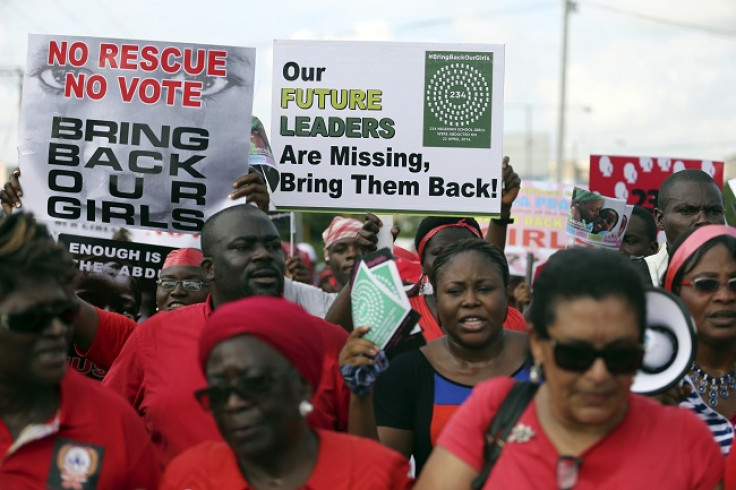Nigeria Ceasefire: Boko Haram Attacks Kill Dozens as Chibok Girls Still Captive

Dozens of people have been killed by terror group Boko Haram since the Nigerian government claimed it reached a ceasefire with the terrorists on Friday (17 October).
During talks, the insurgents also agreed to release some 220 schoolgirls, kidnapped in Chibok, Borno state, last April.
However, since the ceasefire, renewed attacks have claimed dozens of lives in the country's north-east and the girls have not yet been freed.
A senior army officer, who spoke under condition of anonymity, told news agency AFP: "Honestly, we are yet to receive any operational order on the ceasefire. As such, we are battle-ready and would confront the terrorists if we see them."
Insurgents carried out attacks in the Borno towns of Damboa and Sabon Gida at the weekend.
"The fight was tough and it seems the insurgents wanted to destroy everything in Sabon Gida," a local said.
Critics cast doubts over the ceasefire, as Boko Haram's leader Abubakar Shekau did not release any official statement regarding the truce.
"The leader is the only person they respect and listen to," civil rights activist, Shehu Sani, who was involved in past negotiations with the terrorists, told Nigeria's Premium Times. "Any statement that is not coming from the leader of the group cannot be said to be credible and will not be complied with by the group member."
Andrew Noakes, coordinator of the Nigeria Security Network, said that if confirmed, the ceasefire would "bring great relief and hope to the parents of the kidnapped Chibok girls, as well as to millions of people in northern Nigeria who face constant danger due to the insurgency.
"However, we should remain cautious in welcoming this news," he added. "Boko Haram is a fragmented organisation, and it's unclear which factions have signed up to this deal."
Boko Haram, who fights against the westernisation of Nigeria and aims to impose their version of sharia law in the country, declared an Islamic caliphate in Gwoza, along the Cameroon border, in August 2014. The group has been raiding several cities in the north of the country in a bid to take control of more land.
Borno, Yobe, and Adamawa states, where the militants usually carry out their attacks, have been under a state of emergency since May 2013.

The Nigerian government spokesman Mike Omeri said on Friday that authorities were "inching closer to the release of the Chibok girls" and that talks were to resume in Chad this week.
France, which was involved in negotiations to release some nationals held by the terrorists, echoed the Nigerian government by saying that the girls' release could take place "in the coming hours and days".
The Nigerian government previously announced a possible agreement to release the girls in a deal orchestrated by the Red Cross.
Although Nigeria's President Goodluck Jonathan vowed he would fight the insurgents and find the girls, he has been accused several times of not doing enough to combat terrorism in the country.
The Chibok mass kidnapping has caught the attention of the international media, prompting prominent politicians and celebrities to publicly condemn the abduction.
Hundreds of people have joined the Twitter campaign #BringBackourGirls to raise awareness of the issue, while countries, such as Britain, France, and the US, are helping Nigerian troops in the search.
© Copyright IBTimes 2024. All rights reserved.






